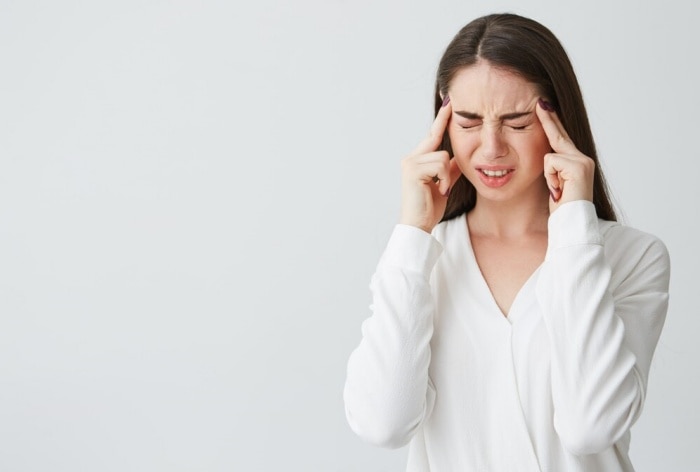Throbbing headache can disrupt your daily function and this one reason can be a major contributor for migraine.

Migraine is a throbbing and debilitating headache that can interfere in your everyday functioning. The throbbing headache is often entails sensitivity to light, food triggers and more. This neurological condition can also be triggered due to environmental factors like weather changes. Weather changes, especially shifts in barometric pressure, temperature, humidity, and atmospheric conditions, can potentially trigger migraines in some individuals. However, not everyone with migraines is sensitive to these weather changes and the exact mechanisms behind these triggers are not well-defined.
Rapid changes in climatic conditions have been found in studies to disrupt the body’s internal balance, resulting in migraines in those who are sensitive. Weather changes may cause variations in blood flow, nerve sensitivity, and neurotransmitter activity in the brain. An abrupt reduction in barometric pressure, for example, might cause blood vessels in the head to widen, resulting in the pounding headaches associated with migraines. People who have a migraine history are frequently more sensitive to weather changes, making them more likely to experience migraine attacks during periods of considerable climatic variation
MIGRAINE: 8 TIPS TO REDUCE PAIN SYMPTOMS
- Rest in a dark, quiet room: Migraine attacks can be triggered by light and noise, so it’s important to find a dark, quiet place to rest when you’re experiencing one. This can help to reduce the pain and other symptoms.
- Apply cold compress: The cold can help to numb the pain and reduce inflammation. You can use an ice pack, a bag of frozen vegetables, or even a cold washcloth wrapped around your head.
- Drink plenty of fluids: Dehydration can trigger migraines and worsen them, so staying hydrated is important. Water is the best choice, but you can also drink clear broths or sports drinks.
- Stress management: Some helpful relaxation techniques include meditation, yoga, and deep breathing. You can also try listening to calming music or taking a warm bath.
- Avoid your triggers: If you know what triggers your migraines, try to avoid them. This may include certain foods, drinks, activities, or environmental factors.
- Stay active: Exercise can help to reduce stress and improve sleep quality, both of which can help to prevent migraines.
- Healthy diet: Eating a healthy diet can help to improve your overall health and well-being, which can also help to reduce migraines.
- Good sleep quality: Get enough sleep. Most adults need 7-8 hours of sleep per night. When you’re well-rested, you’re less likely to experience migraines.
Frequent headaches calls for a concern and should be checked with a medical professional. A change in sedentary lifestyle can help heal several heath issues and healp us lead a better life.

